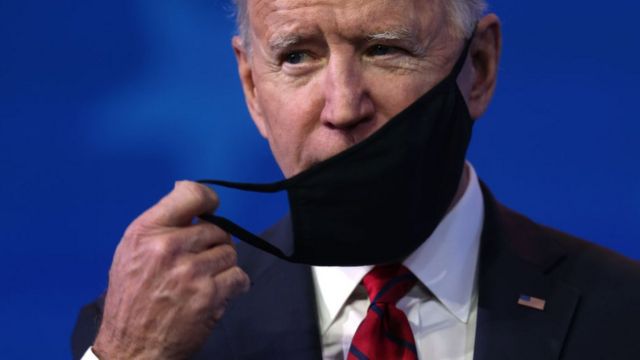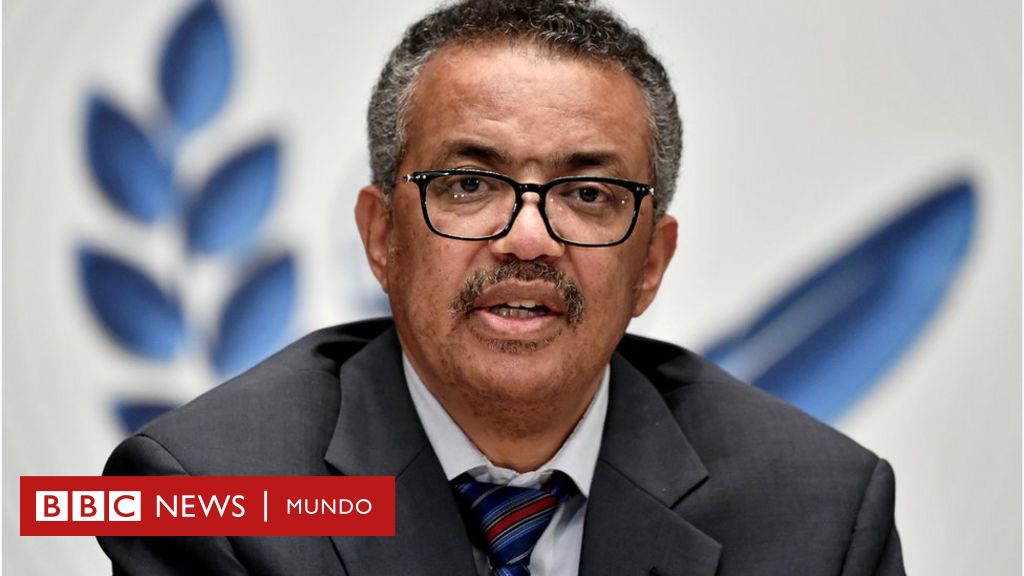- Drafting
- BBC World News
—
1 hour
Image source, Reuters
—
The WHO’s Dr Tedros has warned that the second year of the pandemic is likely to be deadlier than the first
–
The richest nations should postpone their plans to vaccinate children and adolescents against COVID-19 and instead donate those doses to countries with fewer resources.
–
This is said by the director of general of the WHO, Tedros Adhanom Ghebreyesus, who on Friday urged the international community to provide more vaccines to COVAX, the global plan to distribute doses among poor countries.
–
And it is that the international distribution of vaccines against covid-19 continues to be extremely uneven.
–
Since the first drugs were approved last December, wealthier countries have bought most of the supply, rushing to immunize most of their population.
–
What did Tedros say?
At a virtual conference this Friday in Geneva, Tedros made a call to countries that have already achieved high levels of vaccination against covid-19.
–
“I understand that some countries want to vaccinate their children and adolescents, but I urge you to reconsider and instead donate more doses to COVAX,” he said.
–
“In low-income and lower-middle-income countries, the supply of vaccines against covid-19 has not been enough to even immunize health workers, and hospitals they are being flooded with people that he needs urgent assistance to save his life. “
–
Last week, US President Joe Biden presented his plans to begin vaccinating children between the ages of 12 and 15. sooner.
–
Biden also said he expected 70% of the nation’s adults to have received at least one dose by July 4, a day of family celebration for Independence Day that the president also marked as “Independence Day.” [de los estadounidenses] of the virus “.
–

Image source, Getty Images
—
Joe Biden marked July 4 as “virus independence day” in the country.
–
This same week, in addition, the health authorities in the US indicated that people who are already fully vaccinated against the coronavirus can stop using masks in closed spaces, with some limitations, a sign of the improvement of the situation in the country after the success of his accelerated vaccination campaign.
–
Meanwhile, Canada has authorized the use of the Pfizer vaccine for minors between those same ages.
–
The province of Alberta, with the highest rate of infection of the virus in the country, has already begun to offer the doses to citizens from 12 years.
–
Another example is Switzerland, where coronavirus vaccine appointments began to be offered to 16-year-olds last week.
–
As of this May, the United States and China have administered the highest number of vaccines in total, followed by India.
–
However, despite the fact that vaccination campaigns have started almost throughout Europe and America, some countries in Africa have not even started.
–
The COVAX scheme was created to prevent precisely this situation.
–
The mechanism was promoted with the objective of vaccinating first 20% of the population of the 92 poorest countries that joined the plan, starting with health personnel.
–
The initiative is co-led by the WHO and two vaccine advocacy groups: the Gavi Foundation and the Coalition for Innovations in Epidemic Preparedness (CEPI), with UNICEF as a key partner.
–

Image source, Getty Images
—
Obtaining a vaccine with proven effectiveness is not enough to stop the pandemic, since it is necessary to guarantee its distribution.
–
During the conference on Friday, Tedros also stressed that the second year of the pandemic will be much more deadly than the first, and considered that the situation in India “remains very worrying.”
–
India is mired in a virulent second wave of the coronavirus and its positivity rate is around 20%, which highlights the seriousness of the situation since the WHO considers that the pandemic is under control in a country if this data is is below 5%.
–
In the South Asian country, the second-largest population in the world, many health workers who treat coronavirus patients on the front line have not been vaccinated, due to the shortage of doses.
–
Since the start of its ambitious vaccination program in January, the nation has administered 157 million doses, far from the initial goal of inoculating 300 million people by July.
–
WHO considers this to be a “moral catastrophe“which could seriously affect low-income countries.
–
 —
—
–
Now you can receive notifications from BBC News Mundo. Download our app and activate them so you don’t miss our best content.
—


